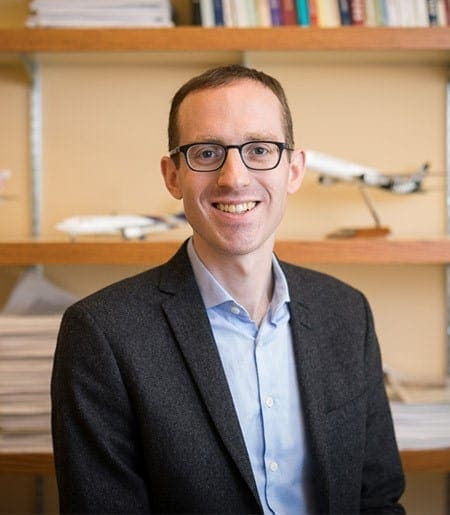Are policymakers open to receiving bioethics guidance in tackling public health challenges? A recent study by Adam Seth Levine, PhD, and funded by The Greenwall Foundation explored this question, uncovering an unmet desire among many local and state policymakers for more interaction with bioethics scholars. However, concerns about potential political agendas and lack of practical advice reveal challenges to building these connections. In the interview below, Prof. Levine shares his findings, describing opportunities for bioethics scholars to support policymakers facing complex decisions. This interview has been edited for brevity and clarity.
What was your research question, and how did you arrive at it?
Our research question was about the degree to which policymakers already interact with bioethicists in order to address public health challenges that they’re facing, and the extent to which they want to be interacting with them. These questions came about from the idea that there are many policymakers, particularly at the sub-national level, who face public health challenges in which they have to make trade-offs that involve an ethical dimension, and that they may not regularly seek counsel from ethicists at these moments. So we used a survey firm to recruit three nationwide samples of policymakers – local electeds, local managers, and state and local civil servants who provide family support services – to ask them directly.
People working in local and state health departments face these trade-offs. How do you decide what services to prioritize? How do you decide where to direct scarce resources? How have other jurisdictions dealt with these questions? And these are very tangible, practical, important public health policy questions. There are often resource limitations, and decisions can have enormous potential equity implications for who gets service, what kinds of services they get, and how they get them. There are all of these value conflicts and questions about how to achieve equitable solutions that are difficult to answer without clear ethical frameworks.
That’s precisely the kind of expertise that bioethicists bring to the table. And so the goal of our study was to get a better understanding of how much that kind of interaction is already happening and whether they would like it to be happening more (or less!).
So what did you find? Is there an unmet desire among policymakers for bioethics perspectives?
We had two key results. First, we found that overwhelmingly policymakers across the three samples had not interacted with bioethicists much, if at all, over the past year: only between 5 to 15% of respondents said that they had had even just one meeting with a bioethicist over the past year.
Second, that said, between 40 and 50% expressed an unmet desire, where they said that they would like to be having more interactions with bioethicists than they currently do.
Did anything surprise you about what you found?
The fact that there was kind of this unmet desire at all was surprising!
The other thing is that we also asked about the policymakers’ hesitations about interacting with bioethicists. After all, in most cases, what that interaction’s going to look like is two people who are strangers engaging in a back-and-forth interaction about a public health challenge that they’re facing. And there can be all sorts of hesitations that arise there.
Around 40% of our respondents said that they were concerned that bioethicists would push a political agenda, which probably goes against the way the bioethicists see themselves. This underscores the way in which any advice or counsel that they provide might be viewed with a partisan lens.
The second most common hesitation – expressed by around 30% of our respondents – was that bioethicists would not share practical information. And this is interesting because there was a much greater concern about not sharing practical information than there was about not having domain-specific expertise. Knowing a lot about a public health policy area is not the same thing as providing practical guidance to a policymaker.
What can bioethics scholars take away from this work?
The goal of doing unmet desire surveys is not simply to do a survey and say we’ve checked the box. The hope is that the survey results have actionable implications.
Because there is an action item here, right? It’s that, for any bioethicist who’s thinking that they would like to get involved with policy, there’s low-hanging fruit – a real opportunity here to go try to build new collaborative relationships at the sub-national, especially local, level. What we know now, because of this study, is that there’s a decent amount of evidence that you’d be pushing against an open door. To be sure, this doesn’t mean that 40-50% of policymakers will all be responsive at a single point in time – that’s not how political agendas work – but it does suggest that broad-based outreach approaches should be successful. I should also add that it’s important to recognize that this kind of collaborative relationship-building is not always incentivized, and so I always make a point of focusing on starting with bioethicists who are already interested in getting more involved with policy.
For instance, one idea is that bioethicists could go and introduce themselves during the open mic portion of the local county legislature. And a lot of this is informal collaboration, maybe over the course of a meeting or a couple of meetings, exchanging knowledge between bioethicists and and policymakers. It can be more than that if they want it to be, but it doesn’t necessarily have to be.
***
For more on Prof. Levine’s work on the collaborative relationships needed to tackle civic challenges, read his book Collaborate Now! How Expertise Becomes Useful in Civic Life
